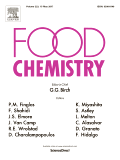 A US government agency has won an initial court ruling against OMICS, which the government says will help stop the academic publisher’s deceptive business practices.
A US government agency has won an initial court ruling against OMICS, which the government says will help stop the academic publisher’s deceptive business practices.
Today, the Federal Trade Commission (FTC) announced that it won a preliminary injunction in September in its lawsuit against Srinubabu Gedela, CEO of OMICS Group and other companies.
The lawsuit, filed in August 2016, accused the defendants — which include Gedela and OMICS Group, iMedPub, and Conference Series — of deceptive business practices related to journal publishing and scientific conferences. The FTC alleged the defendants used the names of prominent researchers to draw conference attendees, even though the researchers had not agreed to participate; misled readers about whether articles had been peer reviewed; failed to provide authors with transparent information about publishing fees prior to submission; and presented misleading “impact factors” for journals.
On Sept. 29, Judge Gloria Navarro of the US District Court for the District of Nevada, wrote that evidence submitted by the FTC “is sufficient to support a preliminary conclusion that Defendants made misrepresentations regarding their journal publishing” and conferences, and: Continue reading US court issues injunction against OMICS to stop “deceptive practices”
 The U.S. Federal Trade Commission has won a judgment against a publisher and conference organizer that has been widely viewed as predatory.
The U.S. Federal Trade Commission has won a judgment against a publisher and conference organizer that has been widely viewed as predatory.
 SCOPUS, the
SCOPUS, the 
 Journals have retracted two papers after they were flagged by a pseudonymous blogger, who suspected all had copied text from other sources.
Journals have retracted two papers after they were flagged by a pseudonymous blogger, who suspected all had copied text from other sources.

 This summer, Ottawa Citizen reporter Tom Spears was sitting by a lake on vacation when he opened a spam email from a publisher. Amused to see the sender was a journal focused on bioethics, he got an idea.
This summer, Ottawa Citizen reporter Tom Spears was sitting by a lake on vacation when he opened a spam email from a publisher. Amused to see the sender was a journal focused on bioethics, he got an idea. The U.S. Federal Trade Commission has charged a publisher of hundreds of academic journals with
The U.S. Federal Trade Commission has charged a publisher of hundreds of academic journals with 